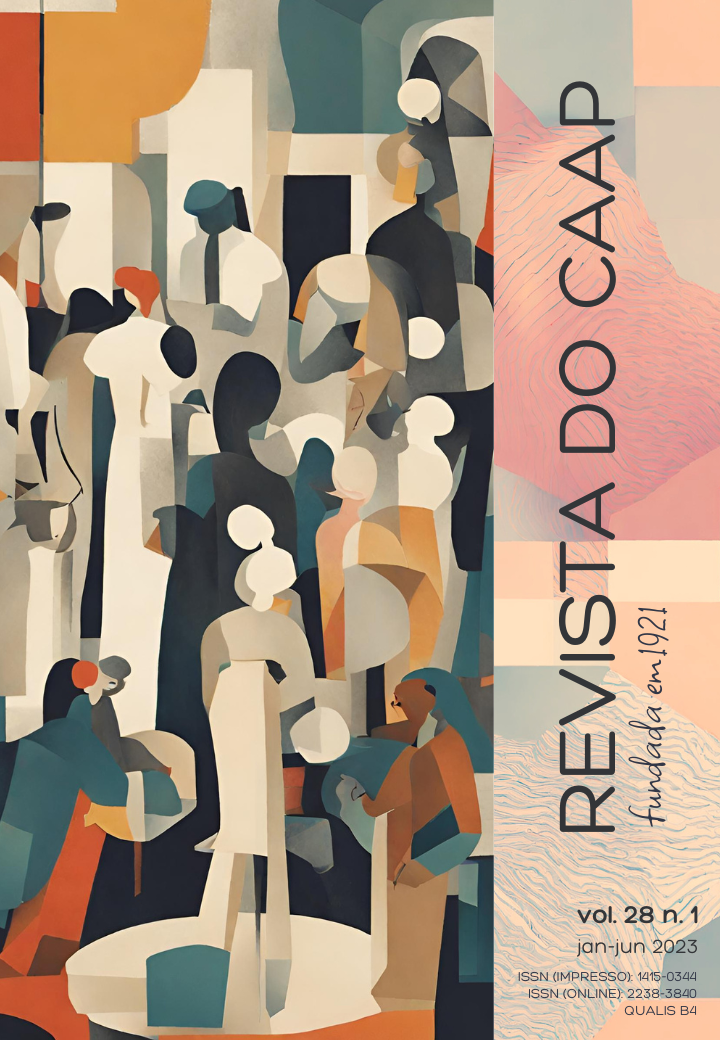The principle of human dignity as a limitation on the power to legislate
DOI:
https://doi.org/10.69881/rcaap.v28i1.47942Abstract
This article seeks to understand the limits of the power to legislate in view of the constitutional normative scope of the principle of human dignity. Given the supremacy of the Constitution of the Federative Republic of Brazil in the Brazilian State, the principle of human dignity is in a higher hierarchy than the constituted Powers. Based on an analysis of the meaning of human dignity as a fundamental legal value and its relationship with fundamental rights, the result is that the power to legislate will have legitimacy (constitutionality) as long as the effect of its action does not violate the principle of human dignity. This need to adapt to the postulate of human dignity as a legal value is not only related to the principle of dignity itself, but also to the different fundamental rights that are inspired by human dignity as an essential value. The work, which has a qualitative character, is guided by bibliographic research in national and foreign works. This article seeks to contribute to the task of understanding the meaning and scope that can be legally inferred from the principle of human dignity as a fundamental value.Downloads
References
BARCELLOS, Ana Paula de. A eficácia jurídica dos princípios constitucionais: o princípio da dignidade da pessoa humana. 3 ed. Rio de Janeiro: Renovar, 2011.
BARROSO, Luís Roberto. A dignidade da pessoa humana no direito constitucional contemporâneo: a construção de um conceito jurídico à luz da jurisprudência mundial. Belo Horizonte: Fórum, 2014.
BRASIL. Constituição da República Federativa do Brasil de 1988. Disponível em: < http://www.planalto.gov.br/ccivil_03/constituicao/constituicao.htm> Acesso em: 22 de dezembro de 2020.
BRASIL. Lei nº 10.406, de 10 de janeiro de 2002. Institui o Código Civil. Diário Oficial da União: seção 1, Brasília, DF, ano 139, n. 8, p. 1-74, 11 jan. 2002. Disponível em: <http://www.planalto.gov.br/ccivil_03/leis/2002/l10406compilada.htm> Acesso em: 22 de dezembro de 2020.
FRIAS, Lincoln; LOPES, Nairo. Considerações sobre o conceito de dignidade humana. RevistaDireito GV,São Paulo.v. 11.n. 2.p. 649-670, dez. 2015. Disponível em: <http://www.scielo.br/scielo.php?script=sci_arttext&pid=S1808-24322015000200649&lng=en&nrm=iso>. Acesso em:25 out. 2020.
HÄBERLE, Peter. Die Verfassung des Pluralismus. Studien zur Verfassungstheorie der offenen Gesellschaft. Königstein: Athenäum, 1980.
ITALIA, Vittorio. I concetti giuridici. Milano: Giuffrè, 2010.
LIMA, Rosah Russomano de Mendonça. O poder legislativo na república. Rio de Janeiro: Freitas Bastos, 1960.
LUZZATI, Claudio. La vaghezza delle norme. Un’analisi del linguaggio giuridico. Milano: Giuffrè, 1990.
MAIHOFER, Werner.Die Würde des Menschen–I. Hannover, 1967.
MARQUES, Pedro Coelho; MASSAÚ, Guilherme Camargo. Dignidade Humana e o Supremo Tribunal Federal. Revista Direitos Culturais, Santo Ângelo, v. 15, n. 37, p. 145-161, 15 set. 2020. Disponível em: <http://san.uri.br/revistas/index.php/direitosculturais/article/view/206>. Acesso em:31 out. 2020.
MASSAÚ, Guilherme. Princípios constitucionais e relações internacionais. Porto Alegre: Livraria do Advogado, 2018.
MCCRUDDEN, Christopher. Human Dignity and Judicial Interpretation of Human Rights.European Journal of International Law.v. 19.ed. 4.p. 655-724.set. 2008. Disponível em: <http://ejil.org/pdfs/19/4/1658.pdf>. Acesso em:05 jan. 2021.
NOVAIS, Jorge Reis. Direitos Sociais. Teoria jurídica dos direitos sociais enquanto direitos fundamentais. Coimbra: Coimbra Editora, 2010.
PIOVESAN, Flávia. Temas de direitos humanos. 5 ed. São Paulo: Saraiva, 2012.
SARLET, Ingo Wolfgang. A eficácia dos direitos fundamentais:uma teoria geral dos direitos fundamentais na perspectiva constitucional. 11 ed. Porto Alegre: Livraria do Advogado, 2012.
SARLET, Ingo Wolfgang. Dignidade da pessoa humana e direitos fundamentais na Constituição Federal de 1988. 9 ed. Porto Alegre: Livraria do Advogado, 2011.
SARLET, Ingo Wolfgang. Dignidade da pessoa humana na jurisprudênciado Supremo Tribunal Federal.Revista jurídica da Universidade do Sul de Santa Catarina.v. 8.n. 14.p. 19-51.abr. 2017. Disponível em: <http://www.portaldeperiodicos.unisul.br/index.php/U_Fato_Direito/article/view/4662/3017>. Acesso em: 30 dez. 2020.
SARMENTO, Daniel. Dignidade da pessoa humana:conteúdo, trajetórias e metodologia. Belo Horizonte: Fórum, 2016.
ZAGREBELSKY, Gustavo. El derecho dúctil. Ley, derechos, justicia. Trad. Marina Gascón. 4 ed. Madrid: Trotta, 2002.
Published
How to Cite
Issue
Section
License
Copyright (c) 2023 Cauê Molina Andreazza, Guilherme Camargo Massaú

This work is licensed under a Creative Commons Attribution 4.0 International License.


